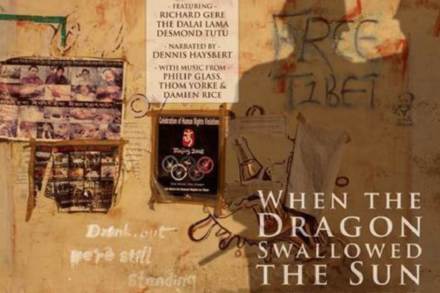 Letter to the King
Letter to the King
Written by Hisham Zaman and Mehmet Aktas
Directed by Hisham Zaman
Norway/UAE, 2014
Kurdish-Norwegian director Hisham Zaman’s second feature is a well-observed ensemble piece, focusing on five refugees who are given the chance to visit Oslo for the day. They live comfortably in a nearby centre but their uncertain status restricts their freedom and makes them unable to move on with their lives.
Each character’s individual story represents an attempt to make a clean break from their situation; they seek legitimacy and progress, in various forms, where it has otherwise been denied. Apart from one notable exception, the stories are commonplace, normal, emphasising that, despite their troubled histories, these people find themselves in an arbitrary position, brought together by their nation’s cruel fate.
The title, Letter to the King, comes from the story of Mirza (Ali Bag Salimi), an 83-year-old Kurd who’s trying to return home to give his children a proper funeral. He’s been through all the official channels, consulting lawyers and immigration officials, but they remain unreceptive to his requests. As a last resort, he gets Zirek (Zheer Durhan), a resourceful teenager who’s fluent in Norwegian, to write him a letter to what he believes to be the highest authority in the country. Narrated over the dignified old man’s scenes, the letter unites the individual stories, elucidating the complex feelings the refugees share towards their adopted country.
Writing to the king is an appeal to tradition and a way for Mirza to bypass the prescriptive legal system that fails to consider him as an individual. He refers directly to the significance of honour and hospitality in his own culture, implying that everyone has the right to be treated as a citizen, regardless of where they come from. He says, ‘In our tradition, we have guests for three days. On the fourth day, you’re no longer a guest, you’re part of the family’. Mirza and his wife have been in Norway for fifteen years.

Taking the letter’s message as his central theme, Zaman brings out each character’s individuality, showing more interest in their personality, temperament and flaws than in the specific details of their story. Marius Matzow Gulbrandsen’s cinematography is drawn to faces and expressions, consistently using a shallow focus to create contrasts between the characters’ emotions and surroundings. The cultural divide between the refugees and the Oslo natives is treated with humour and affection, even though the consequences can have a lasting effect.
The film is only 75 minutes long but the stories are told with such economy that it doesn’t feel like anything has been left out. Each character has a simple aim, which is complicated in some way by their circumstances. Zirek and a middle-aged man, Miro (Nazmi Kirik), use their day in Oslo to meet women, but it’s all too obvious they won’t have time to really get to know them. Another man, Champion (Hassan Dimirci), is looking for work as a martial arts instructor but only speaks Kurdish and German. To add to that, the combination of his race and tough guy image proves disconcerting for many of the locals. Akbar (Amin Senatorzade) is simply trying to get payment from unscrupulous restaurant bosses for hours he’s already worked.
The final story follows Beritan (Ivan Anderson), who leaves her daughter Lorin (Derin Kader) with Zirek while she takes revenge on a man from her past. She puts on a burqa, instantly becoming anonymous, hiding within her gender and culture. In terms of plot, this episode is clearly distinct from the others, but Zaman treats it in exactly the same way. As with the other characters, we remain sympathetic to Beritan until the end. The way her story is presented seems to suggest that we don’t know enough about the situation to judge her, and, until we do, we have no right to. We see only her raw emotions and love for her daughter, which is enough to imply that her actions are ones she felt she had to take.

For Zaman, Oslo is a natural setting for his film but it’s still interesting to see the city in this context. Apart from Mirza, who makes for the Royal Palace, the characters enter a different world from the one we are used to. There’s a large but close-knit diaspora, based around restaurants, bars and cafes, while, in other parts of the city, progress is inevitable, as seen through skyscrapers and construction sites. Norway has an implied continuity and safety – it’s so liberal that the characters can afford to be reckless – but there’s little hope for the refugees being awarded a meaningful place in its future.
In many ways, Letter for the King is a natural progression for Zaman, whose ambitious debut Before Snowfall followed its protagonist on a perilous journey from Kurdish Iraq to Norway. It examined difficult subjects like cultural tradition, honour killing and trafficking with nuance and restraint. However, the most impressive aspect was the way the film humanised its characters, even as they were forced into making impossible decisions. Letter to the King is more modest in scope but it’s equally mature, sensitive and intricate. It confirms that Zaman is more than just an exciting talent; he’s a warm and compassionate filmmaker.
Visit the official website of the Edinburgh International Film Festival.





